Scrap the State Government’s Development Assessment Panel (DAP) for National Parks and Reserves #ScrapTheDap
Submissions closed Friday 29th March 2024, 11:59 pm
Thank you to everyone who made a submission to #ScrapTheDAP.
We received almost 500 submissions!!
The State Government is proposing a developer friendly development assessment and approval process for World Heritage Areas, National Parks and other Reserves.
The proposed new ‘Statutory Environmental Impact Assessment Process’ for reserves will enable developers to ask the Minister for Parks to take developments out of the normal planning and environmental assessment process and be given to a Development Assessment Panel (DAP).
The DAP has all the power to assess and approve a development and can even change the management plan rules. Local councils will be removed from the approval process and the community’s right to appeal the decision is removed. The government is responding to the concerns of the development lobby who want a system that will guarantee their developments are approved even in World Heritage Areas, National Parks and other Reserves.
The developments that will be fast-tracked could include large tourism developments, wind farms, transmission lines and even government proposals such as the Tyndall Range huts.
Ways To Take Action
1. Make a Submission to #ScrapTheDap
Make a submission to scrap the State Government’s DAP for National Parks and Reserves/public land by Friday 29 March 2024, 11:59 pm. It will only take a minute using PMAT’s submission guide below.
2. Contact your State Election candidates
Ask your State Election Candidates their position on DAPs as well as the removal of merits-based planning appeal rights.
3. Contact your local Council/Councillors
Ask your local Council’s position on DAPs. In total 542 submissions were received in 2023 re DAPs on urban/private land with 515 (95%) against (clearly against: 15 community organisations, 484 individuals, 11 councils and 5 councils mostly against). In total, only 14 submissions were clearly in favour. Only four individual members of the public and one council supported the DAPs. The other supporting submissions were development-focused government departments and peak organisations for property development and related industries. See Councillor contact details, including an easy-to-use group email option here:
4. Add to the community discussion via talk back radio or text in:
ABC Statewide Mornings: 0438 922 936.
5. Add to the community discussion by writing letters to the Editor
Add to the community discussion by writing letters/articles to the Editor. See PMAT’s letter writing guide.
- The Mercury: mercuryedletter@themercury.com.au
- The Examiner: mail@examiner.com.au
- The Advocate: news@theadvocate.com.au
- Your local papers such as Meander Valley Gazette, Wynyard Pulse, Huon Valley News, New Norfolk and Derwent Valley News etc.
6. Talk to your family and friends
Talk to your family and friends about the future of your Council and the importance of local and transparent decision making and merits-based planning appeal rights for your local community.
7. Support PMAT and further information
See PMAT’s key concerns, recommendations and background information on DAPs
Subscribe to PMAT’s email updates
Support PMAT’s advocacy for robust and transparent planning with a donation
Background of Issue
The State Government is proposing a developer friendly development assessment and approval process for World Heritage Areas, National Parks and other Reserves.
The proposed new ‘Statutory Environmental Impact Assessment Process’ for reserves will enable developers to ask the Minister for Parks to take developments out of the normal planning and environmental assessment process and be given to a Development Assessment Panel (DAP).
The DAP has all the power to assess and approve a development and can even change the management plan rules. Local councils will be removed from the approval process and the community’s right to appeal the decision is removed.The government is responding to the concerns of the development lobby who want a system that will guarantee their developments are approved even in World Heritage Areas, National Parks and other Reserves.
The developments that will be fast-tracked could include large tourism developments, wind farms, transmission lines and even government proposals such as the Tyndall Range huts.
The Tasmanian Liberal Government proposes legislation to empower the Minister for Planning to remove assessment and approval of developments from the normal local council process to be replaced by State-appointed Development Assessment Panels (DAPs), conducted by the Tasmanian Planning Commission.
The Minister could remove assessment and approval of a development – at any stage in the council process – and transfer to DAPs.
This would allow property developers to bypass local councils and communities and remove elected councillors from having a say on the most controversial and destructive developments affecting local communities.
DAP decisions would be final – there will be no right for the community to appeal the final decision to the Tasmanian Civil and Administrative Tribunal. Developments could only be appealed to the Supreme Court on an error in law.
The Tasmanian Liberal Government is also proposing the same type of process for urban/private land.
DAP Resources
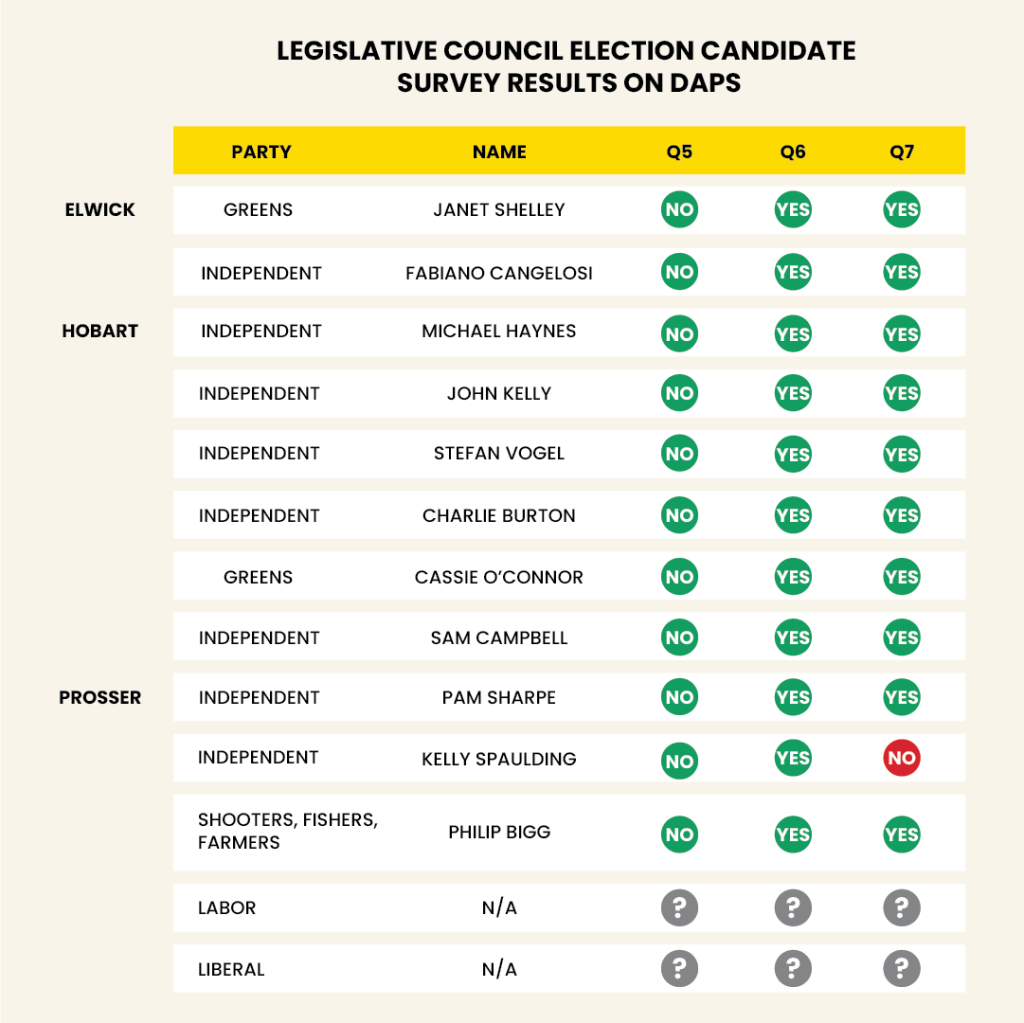
PMAT Survey: What Are Your Legislative Candidates Position on DAPs?

PMAT Submission: Proposed changes to development assessment in National Parks and Reserves + Reserve management planning

Opinion Piece: Planning Shift Takes Away Voice of Communities
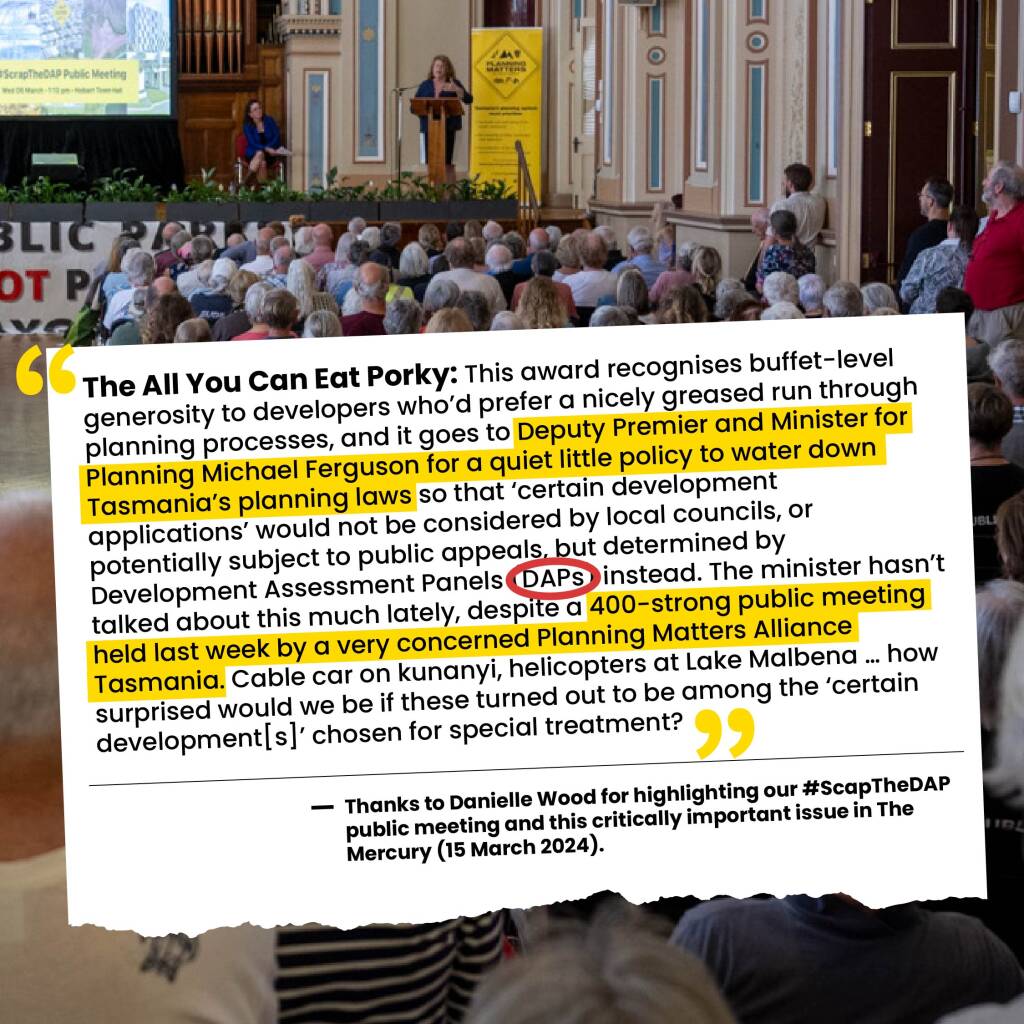
Opinion Piece: “The All You Can Eat Porky” by Danielle Wood
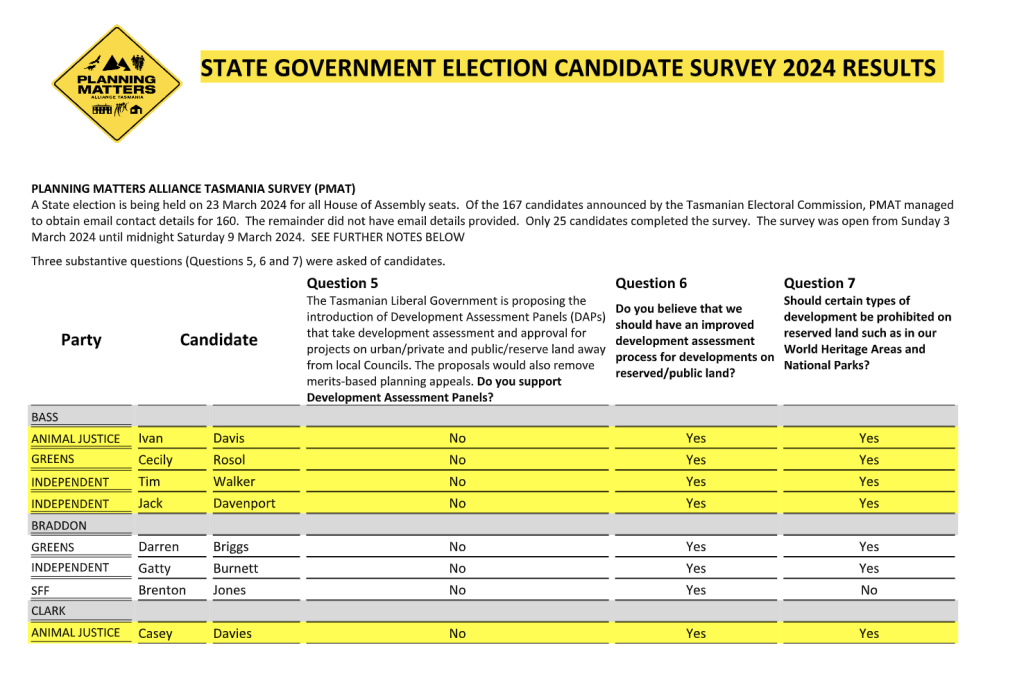
State Election Candidate Survey Results on DAPs 2024
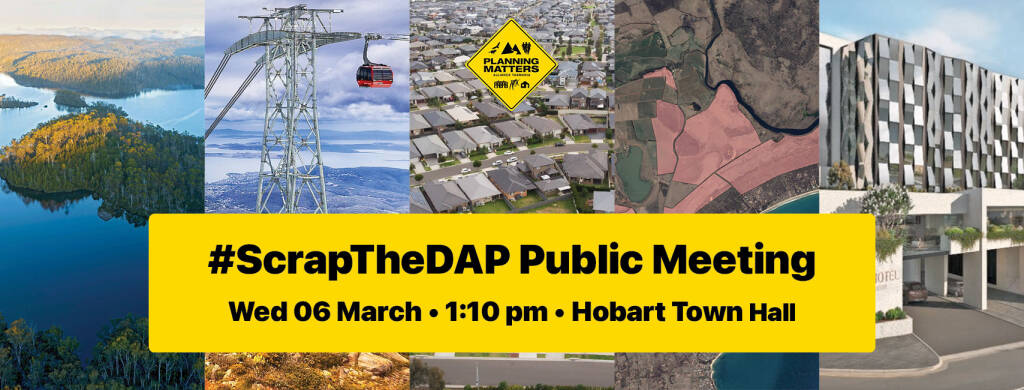
PMAT Media Release: Plan to come to #ScrapTheDAP public meeting
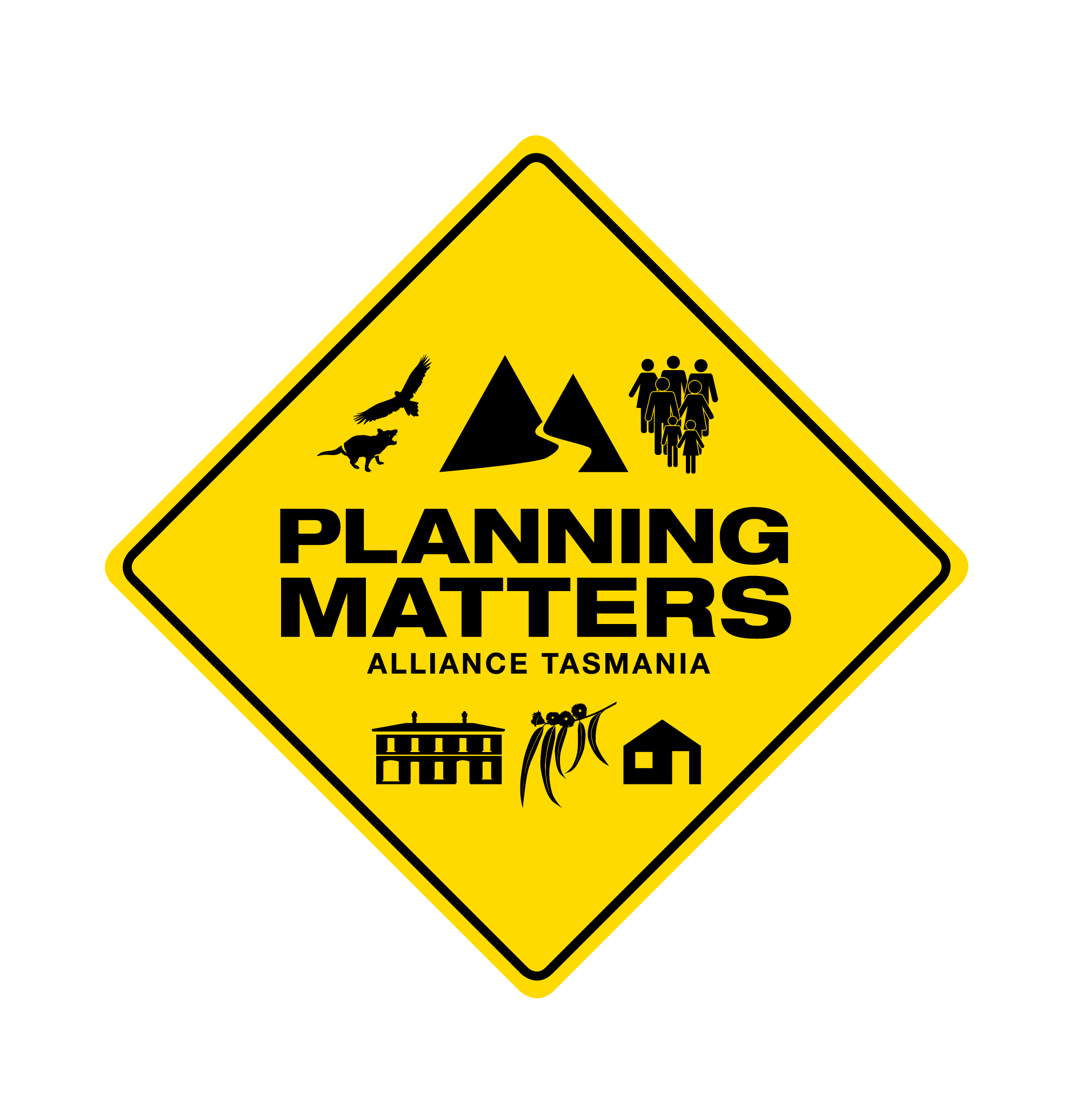
Support Us
Receive News & Updates from PMAT
Stay informed on what’s happening locally and statewide within Tasmania, and join our community in advocating to protect Tasmania’s future.